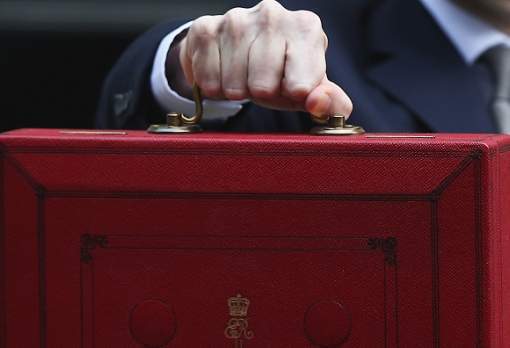
Government has a duty to do what no individual can and no business will: look out for the long term interests of a country and its citizens.
George Osborne’s political trick of the last five years against a too-timid Labour opposition has been to define our national, long-term economic interest as a problem of the fiscal deficit.
Never mind that if the UK economy had continued to grow at the same rate as the first six months of 2010, before Labour’s recovery was choked off, it would be £100bn bigger today. A Yorkshire-sized lump of lost national income, and thousands of good jobs that we could now have had gone with it.
Never mind that GDP per person is still lower than before the 2008 global banking crisis and crash, with most people still thinking their household finances are getting worse not better.
Never mind that only France, Italy and Japan of the G20 countries have grown slower than the UK since 2010. Or that Osborne has led the slowest UK recovery from recession for 100 years – the main reason he failed to deal with the deficit as he promised in the last Parliament.
In Osborne’s Ministry of Truth where black is white and war is peace, vital job-creating, growth-generating investment in our country’s future is the threat.
How else to explain the Chancellor’s plan to legislate that government runs a surplus? His latest political trick to double down on an economic narrative that locks Labour out. It may be good politics but it is bad economics and bad fiscal management.
If we let him do it, then Labour won’t win in 2020, and we won’t deserve to. We know that in the last Parliament, growth weakened as the Tories cut public investment in infrastructure in half, reduced government investment on R&D, slashed vital capital investment on affordable homes, and cut further education.
Economists may argue about the scale of the knock-on economic effect of cutting this sort of spending – the so-called fiscal multiplier – but almost all agree it is significant, and bigger in a downturn or during a recovery. A mid-range IMF estimate suggests that for every £1m governments cut, their economy shrinks between £0.9m and £1.7m.
But investment spending brings more benefit than just short-term economic stimulus.
It’s vital in the long-term as a sure-fire way to lock in both higher growth and higher productivity, which is imperative for good jobs in the future. Without investment in transport, research, skills, energy and communications we won’t create and keep the well-paying jobs we need in Britain.
And it’s vital to any alternative vision of making Britain a better place. Government decisions today determine the opportunities that our children will have tomorrow.
It’s their futures that George Osborne is failing when he chokes off public investment. And their potential he is stunting when he limits our country’s economic potential.
Just as his surplus rule would not work for a family looking for a mortgage to buy their own home, a teenager wanting to go to university or a business aiming to expand, it’s counterproductive too for a country that needs to invest in its future.
The public agree. By nine percentage points, they think the best way to grow our economy is to boost productivity and invest rather than focusing on cutting the deficit and lowering taxes.
No party of the centre-left deserves to get into power if it can’t convince people that government can be a force for good, not just in distributing national income but in creating it too. These arguments are there for the making. And ahead of the Budget next week, Labour must make them.






